Filter by
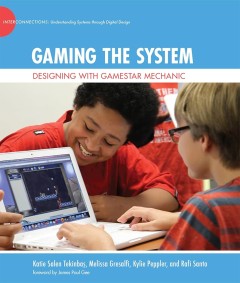
Gaming the System: Designing with Gamestar Mechanic
Understanding games as systems, with complex interactions of game elements and rules.Gaming the System demonstrates the nature of games as systems, how game designers need to think in terms of complex interactions of game elements and rules, and how to identify systems concepts in the design process. The activities use Gamestar Mechanic, an online game design environment with a systems thinking…
- Edition
- -
- ISBN/ISSN
- 9780262319959
- Collation
- 1 online resource (xxxvi, 266 pages :color illustrations.
- Series Title
- -
- Call Number
- -
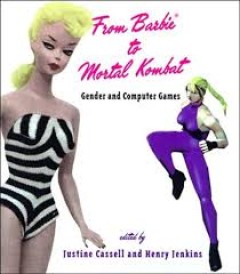
From Barbie® to Mortal Kombat: Gender and Computer Games
Many parents worry about the influence of video games on their children's lives. The game console may help to prepare children for participation in the digital world, but at the same time it socializes boys into misogyny and excludes girls from all but the most objectified positions. The new "girls' games" movement has addressed these concerns. The contributors to From Barbie to Mortal Kombat e…
- Edition
- -
- ISBN/ISSN
- 80262270045
- Collation
- 1 online resource (xviii, 360 pages) :illustrations (some color)
- Series Title
- -
- Call Number
- -
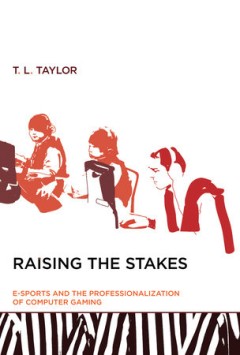
Raising the Stakes :E-Sports and the Professionalization of Computer Gaming
"Competitive video and computer game play is nothing new: the documentary King of Kong memorably portrays a Donkey Kong player's attempts to achieve the all-time highest score; the television show Starcade (1982--1984) featured competitions among arcade game players; and first-person shooter games of the 1990s became multiplayer through network play. A new development in the world of digital ga…
- Edition
- -
- ISBN/ISSN
- 9780262301268
- Collation
- 1 online resource (viii, 323 pages) :illustrations
- Series Title
- -
- Call Number
- -

Gameworld interfaces
Digital games tend to follow one of two trends when presenting game information to the player. The game may present game information in a naturalistic way as part of the imaginary universe presented by the game, avoiding symbolic or abstract representations that seem alien to the fictional world. Alternatively, the game may use graphical augmentations such as superimposed information, menus, an…
- Edition
- -
- ISBN/ISSN
- 9780262319065
- Collation
- 1 online resource
- Series Title
- -
- Call Number
- -
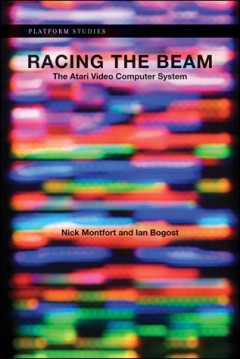
Racing the beam The Atari Video Computer System
The Atari Video Computer System dominated the home video game market so completely that "Atari" became the generic term for a video game console. The Atari VCS was affordable and offered the flexibility of changeable cartridges. Nearly a thousand of these were created, the most significant of which established new techniques, mechanics, and even entire genres. This book offers a detailed and ac…
- Edition
- -
- ISBN/ISSN
- -
- Collation
- 1 online resource (xii, 180 pages) : illustrations.
- Series Title
- -
- Call Number
- -
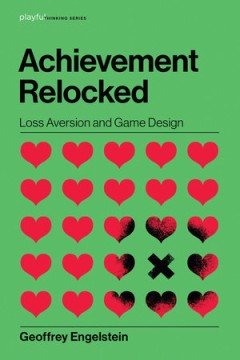
Achievement relocked :loss aversion and game design
How game designers can use the psychological phenomenon of loss aversion to shape player experience. Getting something makes you feel good, and losing something makes you feel bad. But losing something makes you feel worse than getting the same thing makes you feel good. So finding $10 is a thrill; losing $10 is a tragedy. On an "intensity of feeling" scale, loss is more intense than gain. This…
- Edition
- -
- ISBN/ISSN
- 9780262357043
- Collation
- 1 online resource (152 pages).
- Series Title
- -
- Call Number
- -
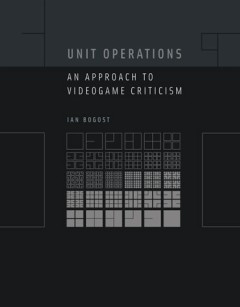
Unit operations : an approach to videogame criticism
In Unit Operations, Ian Bogost argues that similar principles underlie both literary theory and computation, proposing a literary-technical theory that can be used to analyze particular videogames. Moreover, this approach can be applied beyond videogames: Bogost suggests that any medium--from videogames to poetry, literature, cinema, or art--can be read as a configurative system of discrete, in…
- Edition
- -
- ISBN/ISSN
- 9780262268929
- Collation
- 1 online resource (xv, 243 pages)
- Series Title
- -
- Call Number
- -
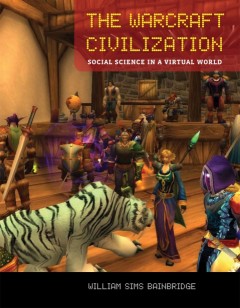
The Warcraft civilization: Social science in a virtual world
From the Publisher: World of Warcraft is more than a game. There is no ultimate goal, no winning hard, no princess to be rescued. WoW contains more than 5,000 possible quests, games within the game, and encompasses hundreds of separate parallel realms (computer serves, each of which can handle 4,000 players simultaneously). WoW is an immerse virtual world in which characters must cope in a dang…
- Edition
- -
- ISBN/ISSN
- 9780262267588
- Collation
- 1 online resource (248 pages) :illustrations
- Series Title
- -
- Call Number
- -
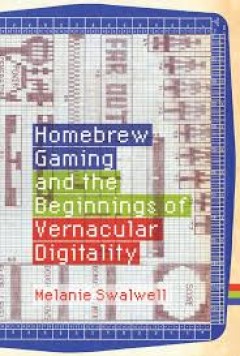
Homebrew Gaming and the Beginnings of Vernacular Digitality
"A history of "homebrew" gaming, focusing explicitly on the Australian and New Zealand contexts"--OCLC-licensed vendor bibliographic record.
- Edition
- -
- ISBN/ISSN
- 0262365618
- Collation
- 1 online resource.
- Series Title
- -
- Call Number
- -
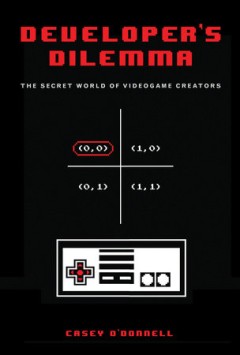
Developer's dilemma :the secret world of videogame creators
An examination of work, the organization of work, and the market forces that surround it, through the lens of the collaborative practice of game development. Rank-and-file game developers bring videogames from concept to product, and yet their work is almost invisible, hidden behind the famous names of publishers, executives, or console manufacturers. In this book, Casey O'Donnell examines t…
- Edition
- -
- ISBN/ISSN
- 9780262322836
- Collation
- 1 online resource (xii, 337 pages).
- Series Title
- -
- Call Number
- -
 Computer Science, Information & General Works
Computer Science, Information & General Works  Philosophy & Psychology
Philosophy & Psychology  Religion
Religion  Social Sciences
Social Sciences  Language
Language  Pure Science
Pure Science  Applied Sciences
Applied Sciences  Art & Recreation
Art & Recreation  Literature
Literature  History & Geography
History & Geography